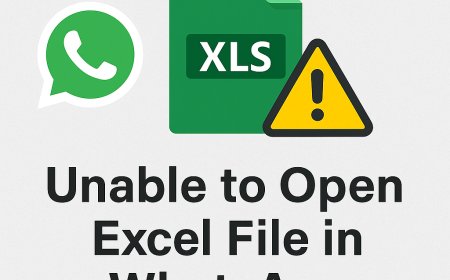Preparing Your ERP System for Future ZATCA Updates and Regulatory Shifts
Learn how Preparing future ZATCA changes starts with the clear evaluation of your current ERP environment.

With Saudi Arabia remaining on the forefront of the digital transformation in the Gulf, the Zakat, Tax and Customs Authority (ZATCA) has launched a number of regulatory changes to modernize and simplify tax compliance. Phase 2 of the e-invoicing is already in action and future phases are bound to add even more rigid protocols, which is why businesses need their erp in saudi arabiasystems to be nimble, compliant, and future-proofed. The task of getting your ERP system ready to meet future changes and updates to ZATCA and other regulations is not simply a compliance issue, it is a strategic one.
Learning the Regulatory Path of ZATCA:
ZATCA has already provided a roadmap to the digitalization of tax reporting. The upgrading of the e-invoicing to a higher phase (Phase 2) of e-invoicing, that is the integration phase was a transformation of the basic invoice generation to real time invoice submission, validation and archiving with the authority. These changes have great technical impact on the ERP systems particularly on the businesses that are registered as VAT in Saudi Arabia. Further stages could consist in more strict control over audits, enlargement of invoice types, reporting on more regular basis, and combining with other governmental systems.
Testing How Prepared Your Current ERP System Is:
Preparing future ZATCA changes starts with the clear evaluation of your current ERP environment. Some companies continue to use legacy systems that will have to be customized to a large extent to conform to the e-invoicing requirements. Somewhere in your gap analysis, you should look at your ERP and assess its ability in e-invoice formatting, XML creation, digital signatures, secure APIs, archiving solutions, and multilingual support (in particular, Arabic and English). Moreover, your ERP should possess in-body tools or modules that will allow you to support the blistering pace of the compliance without relying on the frequent external developments.
Emphasis on API-Readiness and Smooth Integration:
Phase 2 compliance requires the integration of APIs in real-time with the ZATCA platform (FATOORA). Businesses should make sure that their ERP systems have the ability to create and maintain a safe API connection with Zatca e-invoicing Saudi Arabia to clear invoices, report, and synchronize data. This should be supported by a system that allows encryption standards, token-based authentication and the ability to handle errors in order to maintain continuity even when it is experiencing connectivity problems. In the future, being API-ready is not a nice-to-have anymore but a required minimum.
Enhancing Scalability and Flexibility of configuration:
The changing rules of ZATCA will most probably alter the invoice fields, VAT treatments, categories of supply, and rules of cross-border transactions. The rigid or over customized ERP systems can encounter increased upgrade costs or compliance gaps. It is desired that the ERP system ought to provide a configurability in the tax rules, chart-of-accounts design and workflow controls to be able to meet future demands. The systems that will allow updating through patches or modular add-ons will be in a better position to scale up with regulatory changes.
Real-Time Audit Trail Management and Real-Time Monitoring:
As transparency and audit-readiness gains more importance, the ERP systems are required to facilitate comprehensive audit path and real-time monitoring of compliance. This involves monitoring all the modifications, approvals, submission, and rejects associated with an invoice. This kind of tracking does not only assure compliance but also creates accountability within and accelerates the process of solving any dispute with ZATCA. The future regulations can even require that reconciliations be made on a periodic basis, and therefore, the capability of your ERP to have a consistent digital ledger will be vital.
Investment in Cloud based ERP Infrastructure:
An increasing number of Saudi firms are switching to cloud based ERP that can be updated more easily, are more scalable and do not require as much integration with external APIs such as FATOORA. Cloud-based solutions are also characterized by regular updates that are led by vendors and are synchronized with the schedules of ZATCA, which decreases the IT load on employees. With the changing regulatory environments, a cloud-native ERP platform provides your business with a more flexible and future-proof platform.
Conclusion:
Future-proofing your ERP system against changes in ZATCA is not the process of checking compliance boxes. It is all about establishing a digitally resilient infrastructure that conforms to the vision of 2030 of the Kingdom. The early responsive businesses that intelligently invest in adaptive ERP technology and create a compliance culture will not only be penalty free but will also unleash operational efficiencies, increase the accuracy of reporting, and create competitive advantage in a more digitized economy.
Future-proof your ERP now - since regulatory change is not an issue of whether, but when.
































